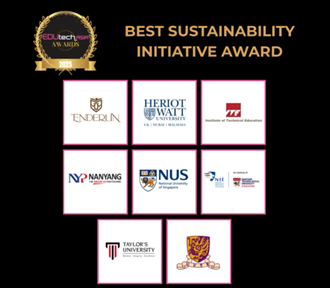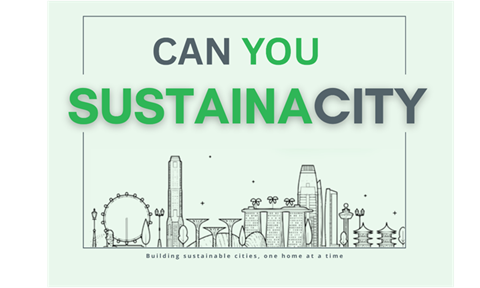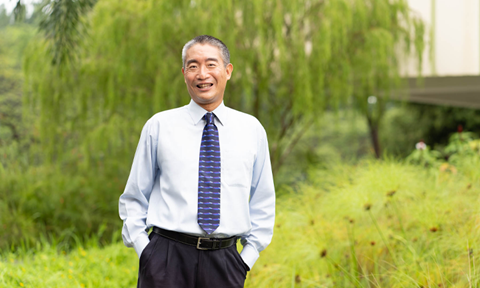The Science of Learning in Education Centre hosts two professional development course at River Valley High School
On 3 April 2025, faculty from the Science of Learning in Education Centre (SoLEC), Dr Aishah Abdul Rahman, Education Research Scientist, Professor David Hung, Centre Director, Dr Imelda Santos Caleon, Assistant Dean (Partnerships) at the Office for Research (OfR), and Dr Jessica Tan, Research Fellow, conducted a full day professional development course at River Valley High School for 85 secondary school teachers. Dr Aishah gave an educational talk on “Attention, Memory, and Executive Function”, and led important discussions about how to improve students’ learning by sharing different strategies to help teachers aid their students’ attention and memory in the classroom. Additionally, Prof Hung added valuable insights and gathered feedback from the teachers on the issues that they encountered in the classroom and how they could potentially integrate Science of Learning into their curriculum. The participants were exposed to thought-provoking questions on how technology and artificial intelligence has changed the educational landscape in Singapore and were able to tap into effective and proven strategies to improve their lessons and engage students better. The participants were also involved in meaningful reflections on how to improve executive functioning, while participating in hands-on activities to come up with ways that can improve learning in the classroom. They were also able to see a live demonstration of a participant completing a Flank task, which tests a person’s ability to suppress inappropriate response, with live electroencephalogram (EEG) readings.
Dr Caleon and Dr Tan presented on the “Social Context of Learning”, where Dr Caleon discussed how different forms of social connections are associated with students’ motivational, well-being and learning outcomes. Using key sociological and psychological theories, she also shared key findings of her studies on how fostering close relationships between teachers and students could positively influence students’ well-being and performance in the classroom. Drawing on network science and motivational theories, Dr Caleon shared how students’ social network attributes can be utilised by teachers in forming learning groups to achieve learning outcomes and highlighted how social structures in the classroom can be modified to promote students’ engagement in learning. Dr Tan presented her research studies on how inter-brain synchrony could help improve teachers and students’ interactions with each other in the classroom. She shared useful suggestions on how teachers could better engage their students in curriculum lessons. The participants managed to see how inter-brain synchrony works in a live demonstration between 2 participants that wore functional near-infrared spectroscopy (fNIR) caps and were asked to solve a puzzle within 5 minutes. The participants were also able to share their thoughts and suggestions that could provide a better learning environment for their students.


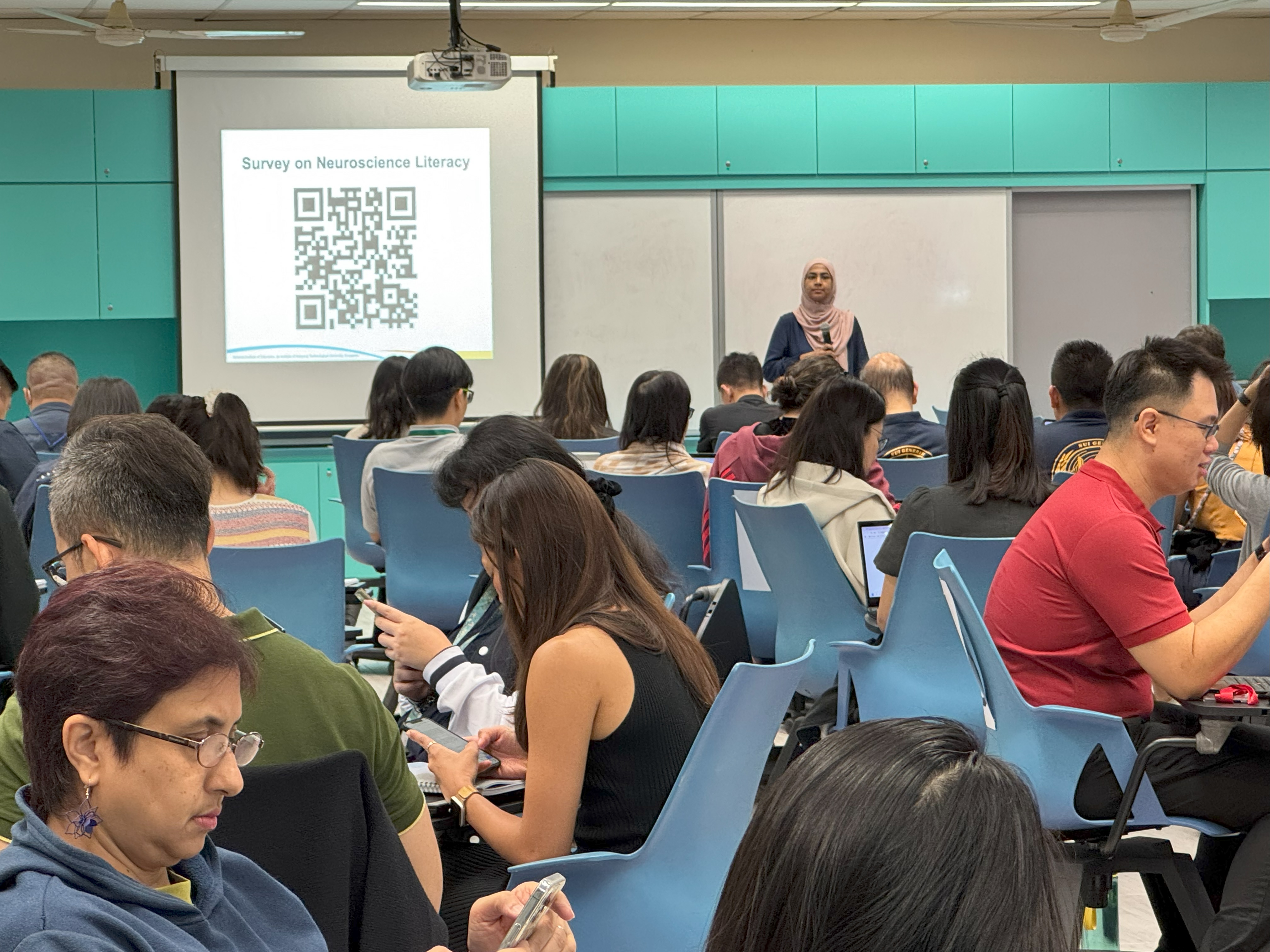
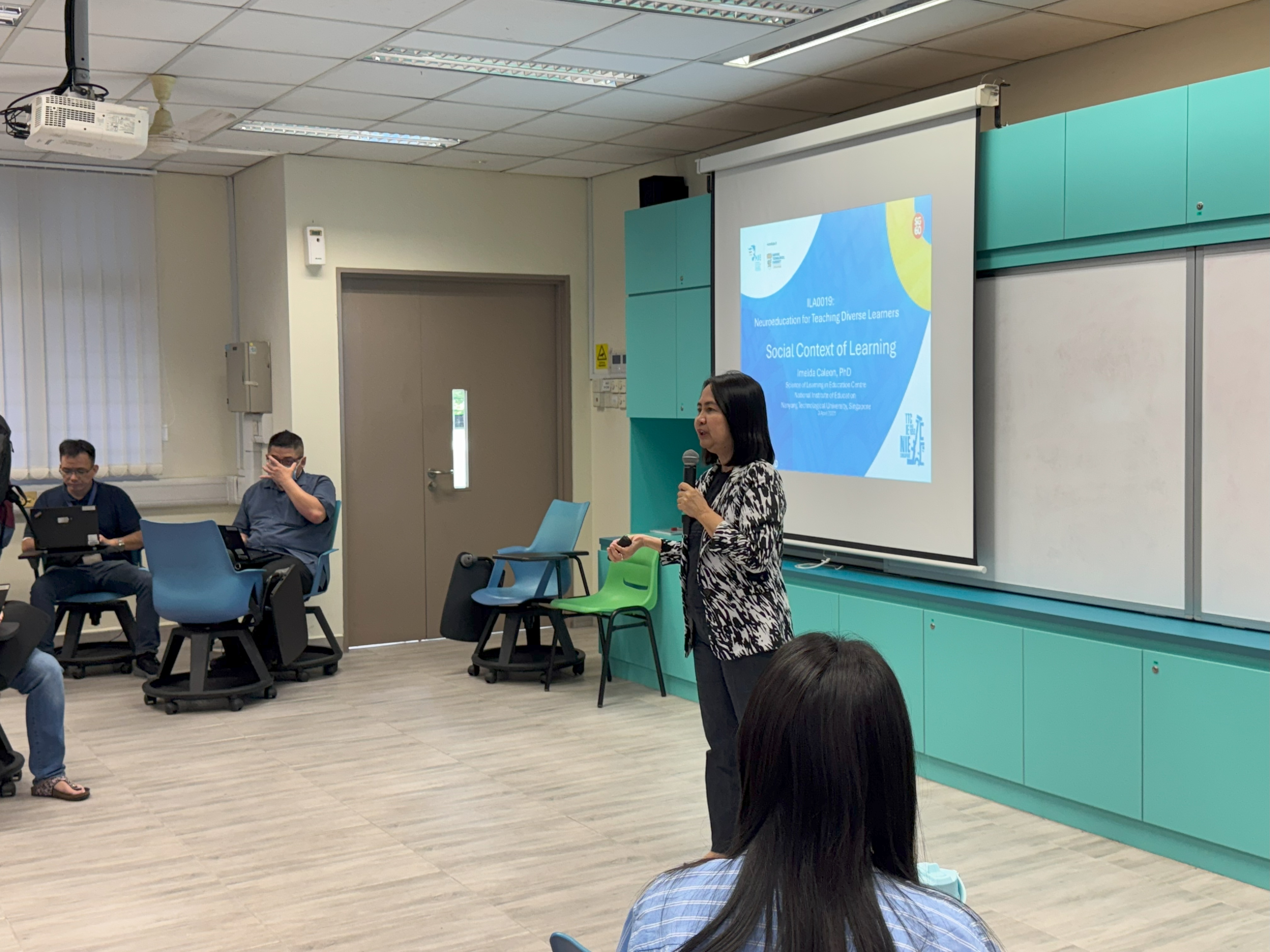

On 15 April 2025, Dr Nastassja Lopes Fischer, Education Research Scientist at the Centre of Pedagogy and Practice (CRPP), Professor David Hung, Centre Director of the Science of Learning in Education Centre (SoLEC), and Dr Astrid Schmied, Education Research Scientist at SoLEC, conducted a full day professional development course at River Valley High School for 78 junior college teachers.
Dr Fischer gave an educational talk on “Cognitive Flexibility and Life Skills”, whereby she shared more on what cognitive flexibility is and how it could be applied in the classroom to better facilitate students’ learning. The junior college teachers were able to participate in activities that increased their knowledge and awareness of how cognitive flexibility could be applied to their teaching practices. Dr Fischer also provided valuable insights into the biological mechanisms of how cognitive flexibility can be reflected from the brain to behavioral patterns via her own research endeavors. Additionally, Prof Hung encouraged participants to reflect on various aspects of life and how cognitive flexibility comes into play. With the help of modern technologies in a digital era, Prof Hung also emphasized on how teachers needed to adopt an adaptive mindset to engage their students in human-centered agency in their learning, especially since they are Singapore’s future workforce.
Dr Schmied spoke on “Critical Thinking, Creativity, Curiosity for the Classroom”, where she got participants to participate in various established assessments such as the Compound Remote Associates Problems test and the Alternative Uses Test, for them to test their abilities to employ critical thinking. The participants were able to gain a deeper understanding of how creativity and critical thinking occurs in the brain, using neuroscience concepts, and how it is reflective in behavior. She also shared how neural correlations occur in the brain when a person is curious about their environment and their eagerness to learn more. Furthermore, she gave the participants deeper insight into how the brain networks, and how it could affect a student’s ability to learn and their internal motivation. The participants brainstormed and discussed how to come up with strategies that could be implemented to promote creativity among their students, with Dr Schmied providing examples on how the participants can modify these established tasks into their curriculum.

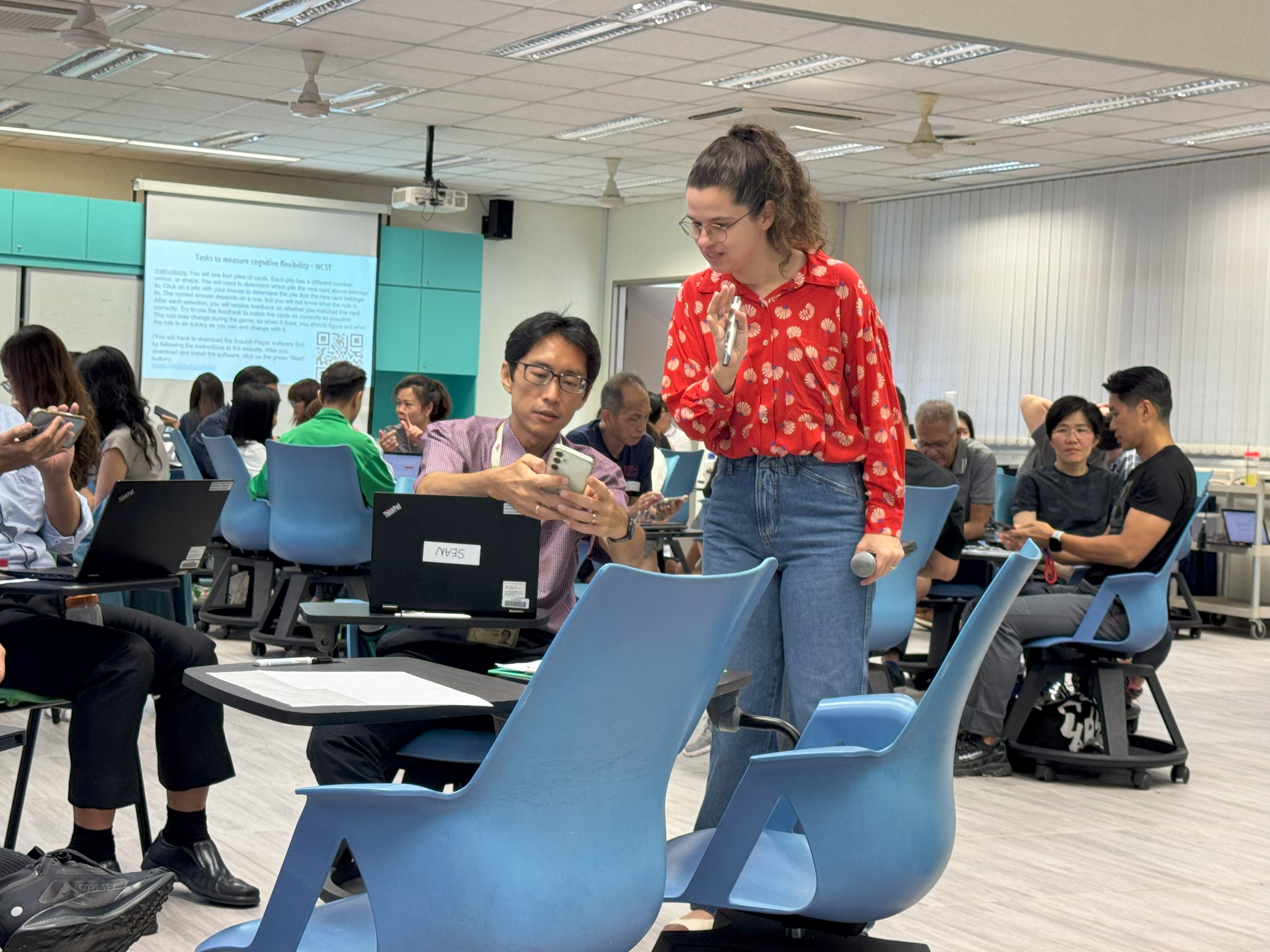
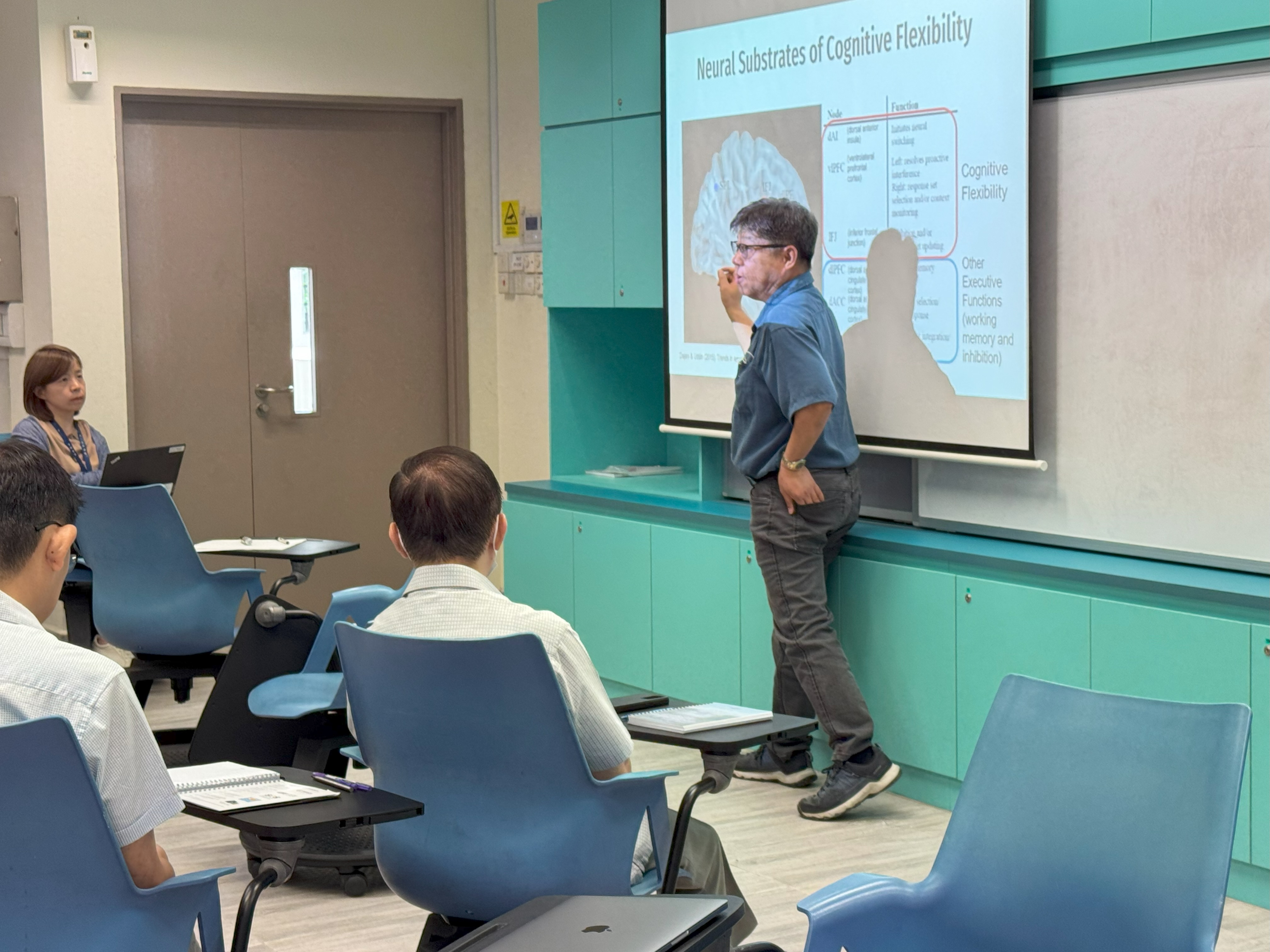
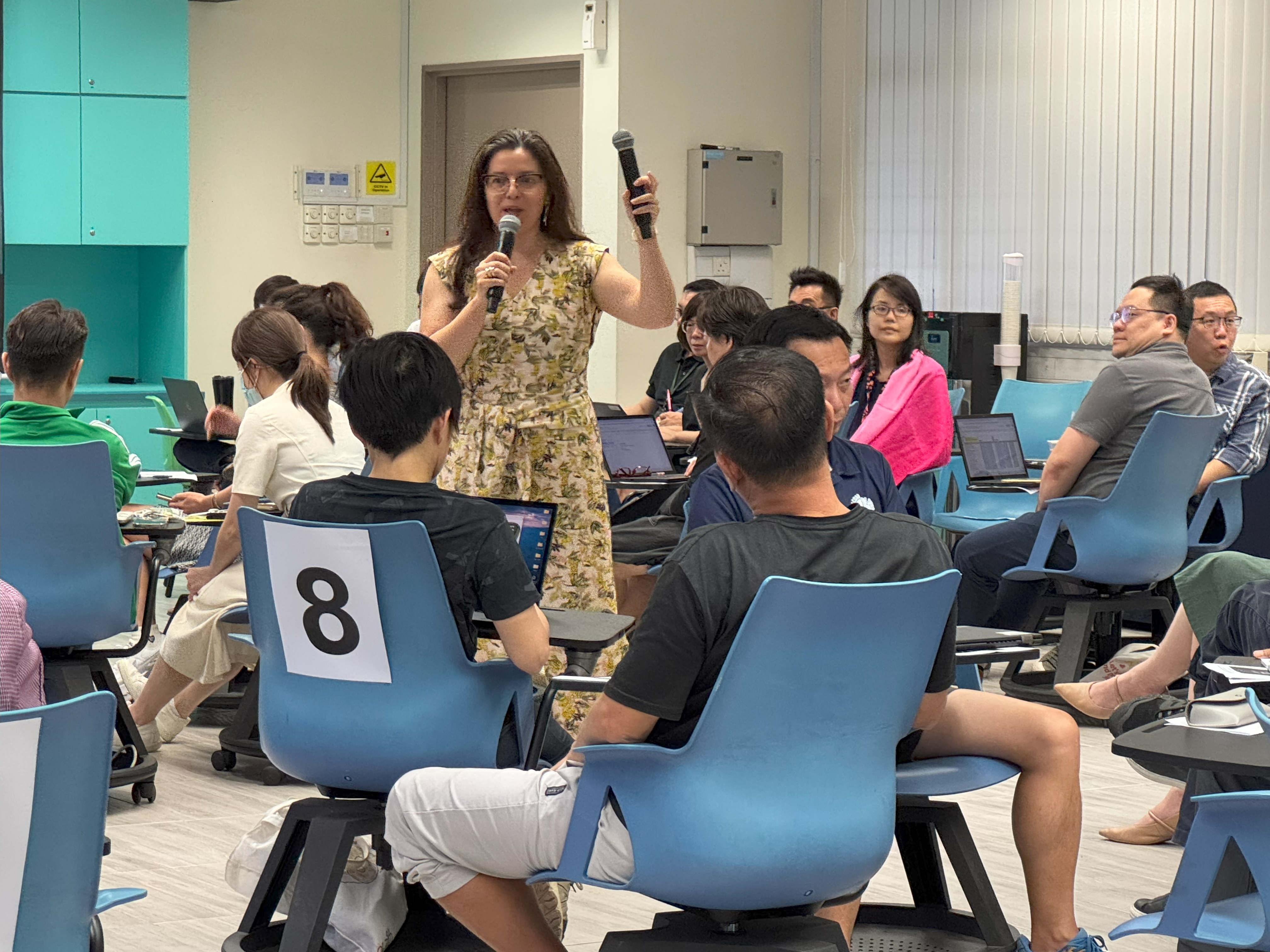


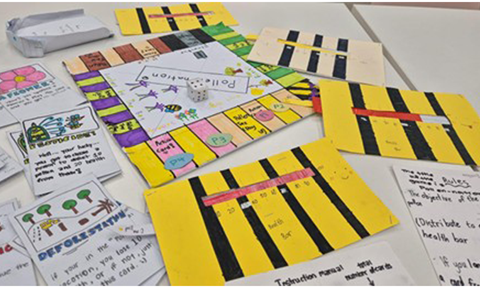
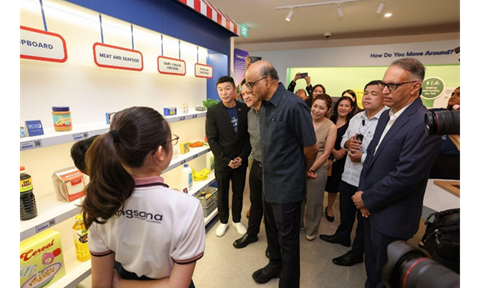
.tmb-listing.jpg?Culture=en&sfvrsn=60db54e_1)
